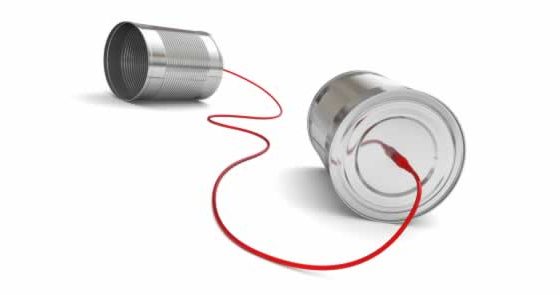A Hunch and Nitrogen-Based Ice Cream
“Could you use a chemist in your ministry?” my dinner host, Dr. Daryl Cox, asked. He was a handsome, middle-aged professor who wore bifocals halfway down his nose. I was caught off guard by the intensity of his question. A chemist? Of course, lots of people have volunteered at our inner-city youth programs and schools, helping to paint walls, scrub toilets, tutor kids. But a chemist? How could I use the talents of the eminent doctor of chemistry in our youth programs?
I was on a recruiting trip to a small Midwest college on this particular trip, and a few faculty had taken me out to a local diner on the final night. All that week I had shared with an audience of college students about how our staff and volunteers work in America’s poorest cities, providing after-school programs, sports leagues, summer camps, and alternative educational opportunities. (Our school in Camden, New Jersey, which meets in a cramped, converted row home, is an alternative high school that has become an oasis for teens who have dropped out of their schools or have performed well below their academic potential.) Now I was just enjoying the moment to unwind and fantasize about that second piece of pie.
But Dr. Cox persisted. “Do your youth have an interest in understanding the elementary principles of chemistry? And if so, could you use me for a week?” Daryl Cox, PhD, head of his chemistry department, was serious.
Chemistry during the last week of school? Not a chance. The kids would either eat him alive or be so bored they would skip the week. I felt certain Dr. Daryl Cox was going to be in way over his head.
But, on May 29, 2004, Daryl Cox rented a U-Haul van and loaded it with Bunsen burners, laptop computers, beakers, and an array of chemicals. For him it was a sixteen-hour sojourn into the unknown. Like Abraham of old, the good doctor was leaving for a place “he knew not.”
And oddly enough, instead of traveling 850 miles directly to Camden, New Jersey, Dr. Cox decided to swing by Greenville, Illinois, to pick up his college roommate from 30 years ago, who also happened to be a chemist. Who also had a PhD. Who also happened to teach college students. And whose name was, well, you guessed it … Darrel. So, there were Darrel and Daryl cruising down the Pennsylvania turnpike in a white rental van.
After they arrived late Sunday afternoon, I showed them the living room of our staff house, apologized, and said, “Well, uh, here’s your lab.” I was certain it was just a little different from their gleaming, state-of-the-art facilities back at their respective colleges. We were as grassroots as it got — primitive, even.
I returned two hours later. “Wow, you really made this place look like something professional. I’m impressed.”
Impressed? Yes. But I was worried. The professors were used to captive audiences — pre-med college students who take notes and pass tests so they can beef up their GPAs for grad school applications. Our kids, on the other hand, doubted they would ever go to college. Our kids were the ones the local public schools had written off. Daryl and Darrel were about to have the test of their lives.
The first day of chemistry class, the students made nitrogen-based ice cream, which led to an instant party. One student, Shamar, met me at the door with a mouth full of white creamy stuff and screamed, “Our science experiment!” Dr. Cox and Dr. Ilers had successfully captivated their imaginations while introducing them to the basic concepts of chemistry.
Surely, by day two, the attention of our teens will wane, I thought.
But on day two the students were measuring relative levels of CO2 in cans of Coke and Pepsi. “Shake the cans and try to determine which soda has more gas.” Of course, shaking cans of soda and spraying it over the parking lot was pretty cool stuff.
By day three the classroom was percolating with chemical concoctions, and graphs were appearing on computer screens. And by day four, the students were hooked. While kids in other schools around our town were cutting classes and getting ready for their proms, our students were captivated by the elementary concepts of chemistry.
By the end of the week, the students were sharing with their newfound friend and mentor their fears about college life. “We’d love to go, but we don’t have the money.” “No one in our family has ever gone to college.” Daryl listened, counseled, and talked to those young people about their fears, how they could prepare for college, and how they could access scholarships. “You can do this,” he said with conviction.
Besides having their minds exposed to the wonders of chemistry and its connections with everyday life, our kids witnessed how Daryl and Darrel integrated their Christian faith into their lives and vocation on a daily basis. As a director of a program, I cannot put a price on this kind of witness, this kind of testimony. Their faith was real. Our kids just knew it, felt it.
A few years have passed, and, yes indeed, a number of those curious young people have gone on to college, two into pre-med programs. In a community that sees fewer than 10 percent of its high school graduates go on to a four year university, our students are living proof of what can happen when God’s people get together and share their lives and gifts. Some of our students still keep in contact with our chemists.
Hunches and God’s Work
When I think back to that wonderful five-day chemistry adventure, I remember how it all began at that diner in Oklahoma City. I think back to a man whose heart began to stir. Dr. Cox had a prompting to step out of his comfort zone, to surrender his gifts to the intentions of God.
And it all began with a hunch. Some might call it a divine nudge, an inspiration, a calling, or a revelation. But I like to call it a hunch … a holy hunch. These hunches happen during the course of a normal day — in the shower, at the breakfast table, at work, during a class. Our hunches often prompt us to actions that reflect the heart of God in the world. Our hunches challenge us to ask questions, make phone calls, write letters, and engage in spontaneous acts of generosity. Like Dr. Cox’s hunch, they challenge us to explore a new possibility. They call us to move beyond the routine.
Hunches are hard to explain. I have yet to find the term listed in some weighty theological dictionary. I don’t think John Calvin or Karl Barth, Augustine or Luther ever devoted a page of their luminous commentaries to the idea of hunches. But just because these theological heavyweights of church history never wrestled to define a holy hunch does not mean that the word is not significant and does not need our reflection. Or, just because there is not a clear, logical definition for a word doesn’t mean the word is irrelevant. Most of us have an intuitive sense of what someone means when they use the word hunch. We may not have the ability to clearly put it into words, but I guarantee we connect with the word in an experiential way. Using holy as an adjective simply means that the hunch comes from God, or moves us toward the things of God, rather than from some other source that might lead us in another direction.
After all, as Christians, we pray, we worship, we read the Scriptures in an effort to open our hearts and minds to the creative movement of God’s spirit. We go through those exercises not simply to show our devotion to God but to open our heart, to prepare our mind for God to speak — for God to give us a hunch. And I believe that when Christians open themselves to the Spirit, they have hunches all the time.
The bigger question centers on what to do when they come.
My experience tells me that our hunches are too often repressed, stifled, or denied. The great enemies of our hunches — fear, practicality, arrogance, insecurity, and laziness — rise up and shackle us from acting on these promptings. Disapproving voices from friends, family members, husbands and wives can override what we know to be true. The negative tapes in our heads, the admonitions from our childhood to be serious or to act “appropriately,” switch on and squelch that still, small voice of God.
Yet when we do respond to our holy hunches, God’s presence in the world is often released in remarkable ways. When we respond to our holy hunches, our faith is stretched and deepened. Lives will be changed. Dreams will be ignited. Ministries will be birthed. God’s love will be acted out in the world. And inner-city teens will be turned on to the wonders of chemistry.
Adapted from Holy Hunches by Bruce Main.
Copyright © 2007 Bruce Main, Published by Baker Books. Used with permission.











